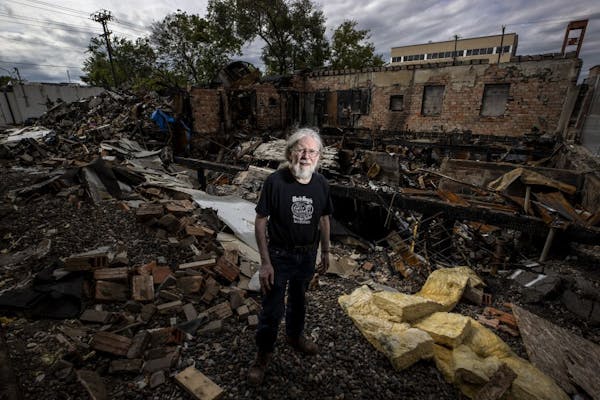Minneapolis Mayor Jacob Frey on Friday gave the first preview of his plans for a 2021 budget that will be scaled back as the city deals with multiple financial challenges.
"Under the weight of the [coronavirus] pandemic and on the heels of the civil unrest following George Floyd's killing, our city's finances are under severe duress," Frey said in a video aired Friday morning.
The mayor's budget address was unlike those of recent years, providing only a high-level overview, while the specifics are expected by the end of September. The city said that's consistent with what other mayors have done following similar crises, such as prior recessions and the collapse of the I-35W bridge.
This year's budget cycle is expected to be more painful than those in many prior years as the city struggles to balance an increased demand for services against the reality that cash is in shorter supply.
"As we weigh what we can forgo, we also understand the undeniable need for new investments," Frey said. "Public safety and racial justice work following the killing of George Floyd has taken on a new level of urgency. Minneapolis is at a make-or-break moment."
The city stressed that the proposal Frey previewed Friday is likely to change significantly before the final budget is adopted in December.
The city is still closely monitoring how the financial markets will respond to the recession brought on by the coronavirus pandemic. The November election will determine which state and federal leaders take office next year — and how likely they might be to provide financial assistance to cities. City Council members will also get a chance to offer their counterproposals as the city debates controversial issues, such as the future of the Minneapolis Police Department.
Council Member Linea Palmisano, the chairwoman of the budget committee, said she expects there will be cuts to "almost every department."
"As the mayor said, we don't have all the details of our budget just yet, but I think there's still some meaningful conversations that we can have," she said during Friday's council meeting.
Palmisano said she expects she and her colleagues will begin debating the high-level budget plans in mid-September.
The sketch Frey provided Friday calls for about $1.1 billion in spending and just shy of $1.4 billion in revenue. The mayor's office cautioned against trying to compare it too closely with other years noting that some aspects, such as the budget for the Minneapolis Parks & Recreation Board, are still being added into the totals.
The city initially approved a $1.6 billion budget for 2020 but later trimmed it to about $1.4 billion following the pandemic's arrival in Minnesota.
Frey's preliminary 2021 proposal relies on a 5.75% increase in the property tax levy, though the city said the effects of that should be offset by revenue brought in from the expiration of a special taxing district.
The revenue from properties in the Consolidated TIF District had been used to cover Target Center acquisition bonds, affordable housing and neighborhood funding. Tax revenue from those properties can now be used for a wider range of expenses.
The city projects that someone whose home is valued at $281,500 would see their Minneapolis property tax bill decrease by about $47 for the year.
Frey's plan also calls for extending a hiring freeze that went into effect in 2020 amid the pandemic's first wave. That would leave frozen the jobs of some police officers who are not now on full duty. The city is authorized for about 880 officers but has not been hitting that mark. Departures accelerated after the unrest that followed Floyd's killing.
The city said 41 officers have left this year and four others were in the process of leaving earlier this week. The city projects that another 63 officers will leave before the end of the year as a result of regular departures or approval of claims for post-traumatic stress disorder.
The mayor said he also plans to launch an early retirement incentive program. The goal, he said, would be to reduce the city's workforce while avoiding layoffs that would likely impact the least senior and most diverse employees.
The mayor promised "significant ongoing funding for affordable housing programming," saying he intends to make the Stable Homes, Stable Schools program permanent. It has been operating on a trial basis.
The mayor also promised to increase funding for the Office of Violence Prevention by $2.5 million and to continue examining which job tasks can be moved out of the Police Department to other offices. He cited, as an example, a recent effort to have the city's 311 department process some theft reports that don't require an officer to immediately be on scene.
Liz Navratil • 612-673-4994

Minnesota State Patrol celebrates diverse new class of troopers

Fired Mpls. teacher accuses management of 'cancerous rot'

Jill Biden rallies women, teachers for the Biden-Harris ticket in Bloomington speeches
Neighbors, city officials at odds over Rochester lake dam

